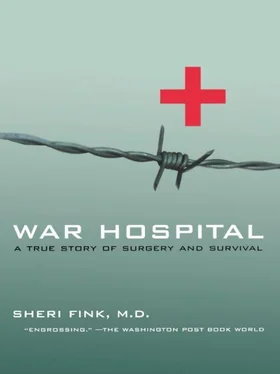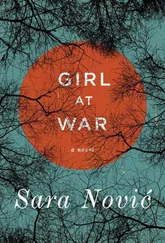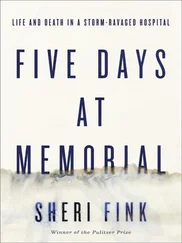For weeks, the Serbs had controlled the local airwaves and broadcast repeated appeals for all Serbs, everywhere, to join the fight against the Muslims. The Muslims had started the war. The Muslims were the aggressors. Even Serb TV, though, was better than what Ilijaz had now, which was nothing. Electricity had just been cut off, and he assumed that the Serbs had interrupted the link to the power plant in Serbia.
To Ilijaz’s surprise, a group of men whom he recognized from the southern part of Srebrenica, an area known as Stari Grad, or Old Town, approached unannounced. Behind them, riding bareback on a tiny horse with his feet nearly dragging on the ground, was their leader, a man in his forties whose name had grown synonymous with fearlessness: Akif Ustić.
“Where’s the doctor?” thundered Akif, Srebrenica’s fit former gym teacher. Ilijaz knew him from before the war, as everyone knew everyone in Srebrenica. Ilijaz stood up, and the commander flashed him a toothy smile framed by a thin mustache that ran along the sides of his mouth. He gave Ilijaz a bear hug and a hard pat on the back.
When the war started, Akif had organized this homegrown battalion with guns from the Srebrenica police station, and soon stories of his courage under fire spread throughout the region. He announced that he was here to help the Kragljivoda troops defend their shrinking territory.
His arrival failed to lift some of the men’s pessimism, and one grumbled in a stage whisper, “People come here and they go away and nobody ever does anything.”
Akif grabbed the man. “OK, we’re going, you and I, for an action to Vitez.”
“OK, fine!” said the other. “But I don’t have a gun.”
Akif gave him his rifle, took another from one of his soldiers, and the two of them trudged toward the front lines, quarreling as they went.
Ilijaz watched them go, sure that they would turn back around. This was no way for a small band of soldiers to start an action. A clear day made it impossible to reach enemy front lines without notice. Success depended on the element of surprise.
But the two kept walking, blind but for each other and their desire to prove themselves courageous. Ilijaz and some others picked themselves up from the grass and followed what Ilijaz considered the fools leading the way.
When the battle broke out, they had about thirty local soldiers assembled on their side. In the ensuing chaos, they began to advance and take the Serb position.
Ilijaz stayed back to help guard the original line. Eventually the clamor of shooting died away. Everyone wondered whether Chetniks had captured their men, and, at the sound of an approaching vehicle, they quickly drew their weapons. A Russian-built Lada Niva appeared. For a split second, they held their fire, just long enough for the driver to stick his hand out the window and scream at them by name not to shoot. They dropped their weapons.
Ilijaz peered through a car window and saw the cocksure leader, Akif, lying on his stomach, clearly in pain.
“What happened?”
“We destroyed them!” Akif grunted, “There’s as many weapons as you like, and now we’re moving on.”
At Ilijaz’s insistence, several men lifted Akif out of the car and Ilijaz surveyed his body for injury. A wounded Serb soldier had thrown a grenade at him when he entered the garage of the hunting lodge in Vitez. Fortunately, a piece of shrapnel appeared to have little more than glanced his right flank. Ilijaz bandaged his wound to stop it from bleeding and prepared to move him to the house that served as an improved clinic.
But Akif stubbornly insisted on returning home to Stari Grad in his captured car, in spite of the fact that Chetniks controlled part of the main road. The only other option was a treacherous journey over unpaved mountain paths—one that the Russian-built car, and the men, would likely not survive.
Akif asked for a man brave enough to drive him and very quickly more than one daredevil disciple offered. Ilijaz considered the trip senseless, but joined it out of duty. Someone had to look after Akif and reassure the soldiers, and Ilijaz wouldn’t pass the risk to one of his two medical assistants.
His brother, Hamid, begged him through tears not to go. Ilijaz handed Hamid his beret and white bandanna to keep until he came back.
IF I come back , he thought to himself.
As he entered the car, a juicy thrill of fear-tinged excitement coursed through him. They took off for the main road with a rifle-toting soldier perched on the hood. A messenger galloped ahead on horseback to alert friendly soldiers to clear the route and repair a partially destroyed bridge that served as a barricade against Serb forces.
When the car reached the bridge, a soldier carrying an automatic weapon joined the other soldier on the hood. The car crossed and entered a zone controlled by Serbs. The men fell silent. Akif, lying on the back seat, quietly removed a pistol from his belt, checked it to see if it was loaded, and handed it to Ilijaz. “Doctor, if something happens, take me first and then do whatever you can.”
Ilijaz looked out the windows, dazed. He had traveled this road hundreds of times before the war, knew its every curve, loved its shifting views of trees and hillsides. Nothing on the surface had changed, and yet the place felt foreign to him now, every seemingly innocent stretch of forest a potential hiding place for something sinister. Only yesterday, he would have described this area as his area, his region, his own. And now it belonged to someone else. How strange that the land that had always provided him sustenance now threatened to take his life away.
Ilijaz caught sight of three men sitting no more than thirty feet from the roadside beside a mound that appeared to be a bunker. Their hands and mouths were busy with food while their rifles lay beside them. As the car drew nearer, the men stood up. They followed the car with their eyes as it passed, but did not reach for their rifles. Nobody shot.
The Lada cruised through the rest of Serb-controlled territory, and it was Akif who realized they now faced a greater danger: friendly forces. Certainly none of the Muslim soldiers expected them to travel this road, especially not in a vehicle.
Akif slowed the driver to a crawl and the two men on the hood of the car began calling out to the local commander. They curved around a bend and came within clear sight of the Muslim gunners—who thankfully held their fire. “Are you guys crazy?” one came up to the car and shouted. “What if someone behind his machine gun had gotten scared and started shooting?”
Now they were firmly in friendly territory, and they continued downhill into the valley of Srebrenica, where houses began to dot, then line, the roadside. Ilijaz looked around himself. How different the old part of town appeared. It even smelled differently; acrid smoke and rot wafted through the open car windows. A few women with wan, scared faces hustled along the sides of the road, but Ilijaz didn’t recognize them. They must have been refugees from outlying villages. Most of Srebrenica’s original population, including its doctors, had fled at the start of the war. The car reached a vista offering a view of the center of town, and Ilijaz looked down through missing rooftops into the burnt, empty rooms of dozens of homes he’d known so well.
The car pulled up to the house of Dr. Nijaz Džanić, an experienced internist who had turned his home into a hospital and was treating patients with materials someone smuggled out of the hospital pharmacy. The forty-two-year-old doctor had never left Srebrenica, not even when Serbs held the town the first three weeks of the war. Nijaz stayed behind to care for his ailing parents. He had long commanded respect—perhaps that is why Serbs spared his house when they torched those of his neighbors. After a group of Muslim men set an ambush that killed the leader of the local Serb forces on May 7, nearly all Serbs, armed and civilian, abandoned Srebrenica the following day. Since then, some of the Muslims who had taken to the woods for safety ventured back to the southern parts of town.
Читать дальше












